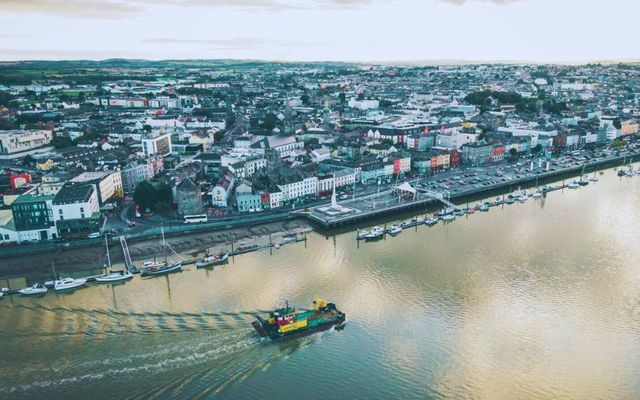A litter survey carried out by the group Irish Business Against Litter (IBAL) shows that towns in Ireland have continued to become less littered.
For the first time since the IBAL surveys began 20 years ago, no area in Ireland was deemed "seriously littered" in 2023.
IBAL found in its final litter survey of 2023 that Maynooth, a university town in Co Kildare, was top of the rankings of 40 towns and cities across Ireland, while Dublin’s North Inner City was at the foot of the table.
Waterford City was Ireland's cleanest city for 2023, according to IBAL.
IBAL says the impending Deposit Return Scheme, which will provide a cash reward for recycling drinks containers at shops, will improve cleanliness levels further however it calls for action to be taken on coffee cups.
Congrats to Maynooth, winner of the 2023 IBAL Anti-Litter League! For the first time, there were no towns or cities branded 'seriously littered'. Find your own town's report at https://t.co/ZKtHtLFGyH and read more here: https://t.co/BowFN8YZ0H pic.twitter.com/tUOgGpAVRz
— Irish Business Against Litter (@IrishLitter) January 7, 2024
IBAL said that while litter levels in Irish towns rose slightly overall, over 60% of towns surveyed were deemed clean in 2023.
An Taisce, which carries out the surveys on behalf of IBAL, commended Maynooth on attaining “a level of cleanliness over the course of 2023 which we have not encountered in two decades of surveying."
The University campus in Maynooth was described as ‘spotless,' with the Main Street achieving “an excellent result for a busy shopping environment.”
Waterford was again Ireland's cleanest city, ahead of Galway. These were the only cities to be judged "clean," with Cork City Center improving to "moderately littered" but Dublin falling to "littered," alongside Limerick.
Dublin North Inner City occupied last place in the table but its "littered" status was an improvement from past years.
IBAL's Conor Horgan said: “This is a disappointing result for Dublin and Limerick city centres, given that they both enjoyed ‘clean’ status a few years ago.
“There are many challenges facing our Capital city, but clean streets are an important starting point on the path to recovery.”
In Limerick, there were “monumental levels of dumping” at Mallow Street, while the vacant site on William Street was “an eye-sore, right in the heart of the city."
“Vast amounts of litter and domestic rubbish” were noted along Dublin’s Sherrard St, while Cathedral St on Cork’s Northside “wasn’t just casually littered but subject to dumping."
Horgan added: “There is some good news in our cities, however.
“For years our worst performing areas were deemed either ‘litter blackspots’ or ‘seriously littered’. This baseline would seem to be changing, with ‘littered’ becoming the bottom tier.
"Cleanliness begets cleanliness, and there is reason to hope the improvement will continue in future years.”
"We need action on coffee cups”
A surprise finding of the IBAL study was the rise in coffee cup litter, which is now close to peak-Covid levels. Coffee cups were found at over 30% of the 500+ sites surveyed.
“We are concerned at potential delays in introducing a coffee cup levy,” says Conor Horgan.
“We believe this action is needed to stamp out a product which is out of step with the circular economy. Irrespective of how recyclable or compostable take-away cups are, these statistics show too many of them are ending up on our streets.”
IBAL says Killarney in Co Kerry has benefited from having banned single-use cups last year, a move met with little or no resistance from the community.
IBAL welcomes the introduction next month of the Deposit Return Scheme as a potential game-changer in the fight against litter, much as the plastic bag levy was. The scheme will see consumers pay a deposit of 15 cent on cans and up to 25 cent on plastic bottles, refundable on their return.
“This latest survey shows these items to be present in just under half of the hundreds of sites we surveyed.
"This scheme will remove a large portion of this litter and bring about a significantly cleaner environment in 2024. While there may be some inconvenience for consumers, the prize is a very real, and a very immediate one.”
There was another significant rise in the prevalence of disposable vapes, highlighted previously as an emerging source of litter. These were found in more than 10% of all sites covered.




Comments